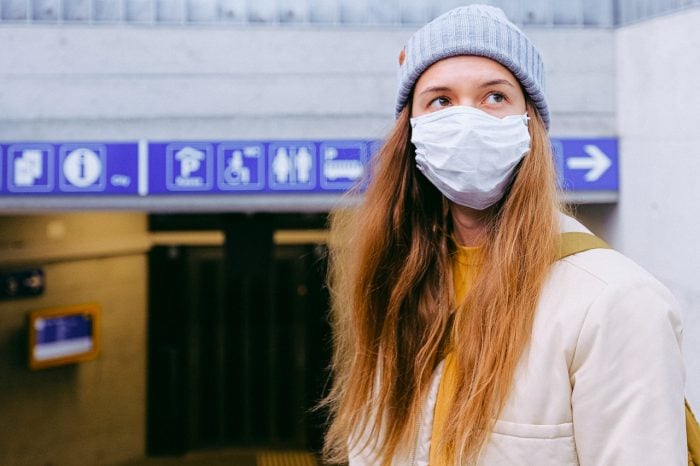On the Myers Briggs personality test, I am 49 percent extrovert and 51 percent introvert.
In my teens and 20s, I was the life of the party. I am a Leo and loved to be the center of attention, but over the years, I have regressed in my social ways.
Socialization, for me, has become a chore—something to be feared and dreaded.
I’m an only child and came from a family of hermits—people who really dreaded social interactions and rarely had people over.
I didn’t have kids come over to my home growing up and always spent a lot of time with other friends at their homes. It was a nice reprieve from my home life, and showed me how others lived (that and all those 80s sitcoms).
Anyway, needing to stay six feet apart, a lack of visiting and social engagements, and staying close to home are welcome nuances for me. I struggle with commitments and like to have an open calendar—but what does all of this social distancing do for our psyche?
I am used to attending recovery meetings one to three times a week, which I haven’t attended in person since March; this has been a struggle. I am used to attending church and small groups, which have all been moved to virtual. I was sad at work recently and a coworker said, “I wish I could give you a hug.”
That’s what I miss. A random comforting hug. The kindness and closeness of conversation with a close confidant—without a mask.
I love a deep conversation with a close friend, but with distance, masks, and lack of touching, the warmth is really hard to obtain.
Coffee dates with friends, happy hours, heck, even PTA meetings would be a welcome change.
How is our culture as a whole (introverts and extroverts alike) being affected by this “new normal?”
How will our children remember the “Pandemic of 2020?”
Is this something they will talk about with their grandkids, like when we heard about “The Great Depression?”
I assume so. Life has been turned upside down for so many of us—some good and some horrific.
My prayers are for this time to be of benefit, but for people who are alone and isolated, I worry about their welfare and mental health. With parents expected to teach, work, and do everything else, how are the stress levels at home? I can say our home has been pretty high on stress these days.
I come from a family where asking for help was seen as weak or inferior. I am fortunate to have learned some tools to come out of this mindset, and I know this is a lie, although I still struggle with feeling worried about being a burden. If I’m desperate, I think I would know where to turn, but what about people in addiction and with nowhere to seek help?
Isolation and mental health do not go hand in hand.
Introvert, extrovert, person in recovery, addict, another health diagnosis—the challenges are varied, but all in all, how will we get through this?
Even as an introvert, I thrive on small interactions with other humans. I recharge and rejuvenate alone, but I believe we all as humans need some type of social interaction and connection with community, some type of fellowship. That’s why people in 12-step programs are so fortunate to have a place to connect and share in commonalities—to help them feel less alone and more in community.
In recovery, they are taught that even if they don’t feel like going to a meeting, they need to go, and eventually, they go and are glad they went. Without face-to-face meetings, therapy, and small groups, and for people who don’t have access to Zoom meetings, life can become more challenging.
I see a lot of memes with people joking about upping their alcohol intake during COVID, but for an addict or alcoholic, this is a deadly combination. Add in some isolation, suicidal tendencies, fear, and anxiety over a global pandemic, fewer resources for mental health and places to gather, and it’s a recipe for disaster.
How do we stop to look out for our neighbor who lives alone and may be struggling, or the person who may be a workaholic, but is now stuck at home with no one to hold them accountable?
I fear for our population of elderly folks in nursing homes or those who are alone. I fear for our kids, who are distance learning with no assistance at home. I fear for our adults who need to make a living, but are unable within our current circumstances. I wonder how detrimental this space in time will be for our children.
Let’s all keep each other in mind when making decisions right now.
How can we help someone who we haven’t heard from in a while? Make sure to check in on your introverted and extroverted friends. Check in on parents, people in recovery, friends out of work, and our older generations. What makes it extra challenging right now is people need to see our smiles and feel our hugs and they literally can’t.
If you have resources for any of the above mentioned demographic feel free to share them here. I have added a couple below.
And if you haven’t taken a Myers Briggs personality test, you can do a free one here.
In love and light.
~
Google Crisis Prevention Resources
SAMHSA’s National Helpline: 1-800-662-HELP (4357). SAMHSA’s National Helpline is a free, confidential, 24/7, 365-day-a-year treatment referral and information service (in English and Spanish) for individuals and families facing mental and/or substance use disorders.
~









Read 14 comments and reply